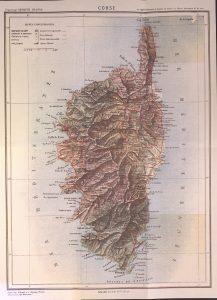
Back to top

Université de Corse
Avenue Jean Nicoli
20250Corte
France
Intervention de Christophe Luzi, Ingénieur de recherche au CNRS, UMR 6240 LISA – Università di Corsica Pasquale Paoli
L’intégration et la lisibilité globales des plateformes numériques au sein d’un laboratoire sont les indicateurs cruciaux, permettant notamment d’apprécier comment est orchestrée la politique scientifique d’une unité de recherche et les moyens humains qu’elle fédère. Pour l’UMR LISA, elle est un indicateur fort de la cohésion des équipes. La refonte en cours de la plateforme de la M3C, suppose l’élaboration d’un plan de gestion des données qui permette de faire monter en compétences techniques le vivier documentaire et scientifique local consacré à la langue, à l’histoire, au patrimoine ainsi qu’à la culture de notre île, tout en répondant aux enjeux et aux défis actuels posés par la politique de la science ouverte. La valeur des données numériques réside dans leur exploitation, et la plus large mise à disposition possible auprès des publics actuels. L’accès total et ouvert aux données scientifiques est d’ailleurs en passe de devenir la norme pour l’échange des données scientifiques issues de la recherche financée sur fonds publics. À ce titre, il est indispensable d’élaborer localement et au sein d’un institution scientifique comme l’UMR, une politique globale et cohérente.